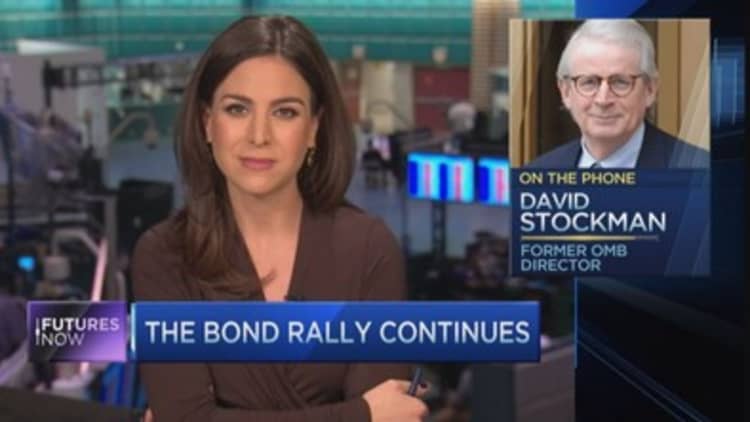In the debate over the growing disparity separating America's rich from a struggling middle class, the wealthy aren't usually associated with everyday concerns such as saving for college, helping struggling family members or ensuring a comfortable retirement.
Derided as the "1 percent" because their collective wealth eclipses that of the remaining 99 percent, upper-income earners are often defined by rarefied trappings of wealth. According to a study by The Boston Consulting Group, high net wealth individuals are worth more than $152 trillion collectively.
However, the CEO of a prominent wealth management firm told CNBC that the rich are more than just the sum of their lavish homes, luxury vehicles and large bank accounts. In fact, he said members of the top income bracket struggle to preserve capital and balance competing financial interests.
In that vein, money considerations among the rich aren't too far removed from the middle class, though admittedly on a different scale.
Read MoreOscars: Wage inequality takes center stage
"Within the investor world, you have different levels of worth," said John "Jack" Markwalter Jr., head of Atlantic Trust Private Wealth Management, which holds $26 billion in assets under management.
Although their concerns are certainly not as acute as those of the middle class, even some wealthy families have to plan around pocketbook issues such as "paying for college, retirement and helping family members," he said.
Legacy, and noblesse oblige

Among those investors with at least $30 million in assets—the conventional definition of high net worth individuals—the wealthy tend to defy the cultural caricature of greedy robber barons. According to Markwalter, most clients begin thinking about wealth "with a purpose," even as they invest in higher-yielding assets to grow their capital.
"Generally, as one moves up the wealth curve and portfolio sizes become larger, there is more ability to lean into risk and absorb more volatile results in the effort to seek higher overall returns over longer periods of time," he said. "Also, with higher levels of net worth, there tends to be a greater focus on legacy—what is the money for?"
That latter part is what the veteran wealth manager, who has nearly three decades of experience in the field, said separates the wealthy in the U.S. from their global counterparts: An acute sense of noblesse oblige. They tend to be extremely philanthropic with their assets.
"It is primarily a U.S. phenomenon," Markwalter said, adding that Atlantic Trust clients view charity as a de facto obligation. "If you look at philanthropy and the levels of wealth in the U.S., Americans are incredibly generous."
Wealthy investors "give buildings to research universities or name an endowment to their mothers, or help educate children."
Read MoreWho gave away the most money in 2014?
Millionaires and billionaires have a long history of giving lavish gifts to universities and research facilities, a pattern Markwalter sees in Atlantic Trust's clients. Despite this trend, the richest Americans, defined by those who earn at least $200,000 annually, cut back on how much they gave to charity by nearly 5 percent in 2014, The Chronicle of Philanthropy noted in a study.
Transferring wealth
"There are a number of individuals who feel a sense of obligation to their alma mater, and people are incredibly generous," Markwalter said. In addition, he's noted a boost in giving to environmental causes and children's health.
In recent years, middle-class parents have increasingly stressed the importance of financial education to their children, particularly as the millennial generation comes of age. On that score, Markwalter said the concerns of the rich and the middle class converge significantly.
Read More
Rich parents are focused on, "How do we raise financially aware children and grandchildren, and are they aware of how it all works," the CEO said. Those discussions, which Atlantic Trust helps to facilitate through the use of seminars and intergenerational conferences with wealthy families, are central to what upper-income earners define as preserving a financial legacy.
"It's interesting to see how many children and grandchildren grow up around significant wealth but are not sophisticated financially," Markwalter said.
Once they amass their wealth, top earners say to themselves, 'Now let's talk about what we do with this money,' " Markwalter said. "How can the family make a positive impact?"


